The most effective cocaine recovery programs combine long-term
residential treatment with Contingency Management (CM) and Cognitive Behavioral Therapy (CBT). You'll find success rates of
35-50% in residential settings, compared to 25-30% in outpatient care.
Medical detox should be your initial step, followed by at least 90 days of structured treatment. Research shows you're 3 times more likely to complete treatment in a residential setting, where extensive support systems and immediate rewards boost your recovery voyage. Understanding these evidence-based approaches can greatly improve your chances of sustained sobriety.
The Superior Success Rates of Inpatient Treatment
While both
inpatient and outpatient programs offer viable paths to cocaine recovery, research consistently demonstrates the superior effectiveness of
residential treatment options. You'll find that inpatient setting benefits include
success rates of 35-50%, compared to outpatient rates of 25-30%. The evidence is particularly compelling for those who complete full programs, with 68% achieving initial recovery and 48% maintaining
long-term sobriety. Having a
strong support system throughout treatment significantly improves outcomes. Comprehensive treatment approaches in residential facilities lasting
90 days or more show even more promising results, with only 21% of patients reporting weekly cocaine use after one year. The constant monitoring by healthcare staff ensures patients receive
medically-supervised detox throughout their stay. Approximately
55% successfully complete cocaine treatment when discharged from formal programs. The heightened structure and constant support provided in inpatient settings contribute to higher
completion rates of 49%, versus 43% in outpatient care. These statistics underscore why medical professionals often recommend residential treatment for ideal recovery outcomes.
Long-Term Residential Programs Vs Outpatient Care
While both
residential and outpatient programs can support cocaine recovery,
treatment duration greatly impacts success rates regardless of setting, with 90+ days showing superior outcomes. You'll find that
long-term residential programs report 35-50% abstinence rates after one year, compared to 25-30% for outpatient care. Your likelihood of maintaining sobriety increases tremendously in residential settings due to their structured, immersive environments and bolstered accountability measures.
Self-help program participation during follow-up treatment significantly improves long-term cocaine abstinence outcomes. Research shows that individuals who develop cocaine dependence tend to achieve
remission within 5 years after the onset of dependence.
Success Rates By Setting
Two key treatment settings dominate cocaine recovery programs:
long-term residential care and
outpatient services, with distinct
success rates between them. Long-term residential programs consistently achieve higher success rates (35-50%) compared to outpatient care (25-30%).
Patient demographics play an essential role, as residential programs primarily serve those with severe addiction profiles and psychiatric comorbidities. Data shows that patients in residential programs are
three times more likely to complete treatment than those in outpatient settings. Most insurance providers now offer
comprehensive coverage for both treatment options. Research indicates that residential programs rely heavily on
peer counselors to facilitate lifestyle changes through communal experiences. You'll find
residential treatment completion rates of 64.5% versus 51.9% for outpatient care in national samples. The structured environment of residential programs markedly reduces early relapse risk, especially when treatment extends beyond 90 days. While outpatient care may suit individuals with mild to moderate addiction and strong social support, it's less effective for severe cases.
Aftercare planning remains critical in both settings, though long-term gains are stronger when structured support continues post-discharge.
Treatment Length Matters Most
Treatment length emerges as the most crucial predictor of
successful cocaine recovery outcomes across both
residential and outpatient settings. The research consistently shows that staying in treatment for
at least 90 days enormously improves your chances of maintaining abstinence and preventing
cognitive decline.
Problem severity strongly influences treatment success rates. Approximately
70% of patients successfully completed the recommended treatment duration across all program types. Studies indicate that
multiple weekly sessions yield superior results compared to single weekly visits. Key findings demonstrate that
treatment duration impacts success rates:
- You'll achieve remarkably better outcomes with 90+ days of treatment, regardless of whether you choose residential or outpatient care
- Patient motivation factors improve when you remain in treatment longer, leading to higher attendance in aftercare programs
- You're more likely to develop stronger coping mechanisms and maintain abstinence when engaged in extended care
- Your risk of relapse decreases substantially with longer treatment periods, particularly when combined with cognitive-behavioral therapy
Evidence-Based Benefits of CBT for Cocaine Recovery
Research consistently demonstrates that Cognitive Behavioral Therapy (CBT) yields significant benefits for cocaine recovery, supported by moderate effect sizes (d = 0.45) across multiple clinical trials. With therapist guidance and program flexibility, CBT outperforms traditional treatment approaches, particularly in maintaining long-term abstinence. Recent studies show that
condensed CBT demonstrates superior outcomes compared to traditional 12-step programs for cocaine addiction treatment. The study found that
sixty percent of participants successfully completed the full treatment program. The integration of
cognitive compensatory strategies into standard CBT sessions has shown promising results for improving learning and retention of therapeutic content.
| CBT Benefits |
Evidence-Based Outcomes |
| Trigger Recognition |
60% negative toxicology at 52 weeks |
| Coping Skills |
Significant drop in use frequency |
| Relapse Prevention |
Improved abstinent weeks |
| Self-Monitoring |
48-60% negative samples at follow-up |
| Functional Recovery |
Amplified treatment retention |
You'll develop essential skills to identify and manage high-risk situations while learning to prevent relapse through active coping strategies. CBT's effectiveness is particularly notable in cocaine-specific outcomes, where you'll gain tools for long-term recovery maintenance and improved self-regulation.
Reward-Based Recovery: Understanding Contingency Management
You'll find that
contingency management utilizes powerful reward systems to promote positive behavioral changes in cocaine recovery, using
vouchers and prizes to reinforce drug-free choices. Your recovery path becomes more sustainable when these incentives are strategically combined with other
evidence-based treatments like CBT or group therapy, creating an extensive approach to healing.
Prize incentive programs have demonstrated remarkable success across addiction treatment centers nationwide, offering both small and large rewards for meeting recovery milestones. The effectiveness of this method is clearly measured through objective markers such as
clean drug tests and program attendance, with research showing participants are nearly four times more likely to maintain abstinence compared to standard treatment alone.
Incentives Drive Behavior Change
While many traditional addiction treatments rely on counseling and medication alone, contingency management (CM) stands out as a powerful behavioral intervention that utilizes
tangible rewards to reinforce positive changes in recovery. Scientific evidence demonstrates that CM's effectiveness stems from its direct impact on your brain's reward pathways, counteracting the
diminished natural rewards common in early sobriety. You'll find that this approach works by:
- Providing immediate rewards for clean drug screens and treatment attendance
- Incentivizing medication adherence through vouchers or prizes
- Fostering social connections through group-based reinforcement
- Supporting milestone achievements with escalating rewards
Research shows that
larger incentives yield greater behavioral changes, with CM participants achieving nearly four times longer periods of sobriety compared to standard treatment. This approach has proven effective across
diverse populations and treatment settings, making it a cornerstone of modern cocaine recovery programs.
Combining Rewards With Treatment
Since contingency management has proven effective on its own, combining it with cognitive behavioral therapy creates an even more powerful treatment approach for cocaine recovery. When you participate in this integrated approach, you'll experience personalized reward schedules that reinforce the coping skills you learn in therapy.
| Treatment Component |
Impact on Recovery |
| Immediate Rewards |
Strengthens motivation |
| Frequent Testing |
Upholds accountability |
| Bonus Incentives |
Promotes long-term success |
| Progress Tracking |
Measures improvement |
| Skill Development |
Boosts coping abilities |
Research shows that monitoring treatment compliance through this combined approach leads to considerably better outcomes, with 49% completion rates compared to 35% in standard care. You'll benefit from both immediate reinforcement of positive behaviors and the development of lasting recovery skills, creating a thorough foundation for sustained sobriety.
Measuring Success Through Rewards
Measuring success in contingency management (CM) programs relies on several key metrics that demonstrate the effectiveness of
reward-based recovery. Through
reward structure optimization and careful monitoring, CM has proven considerably more effective than
standard treatment approaches. Research validates CM's superior outcomes through:
- Abstinence rates of 31.7% compared to 13% in control groups, confirmed by urine screening
- Treatment completion rates of 49% versus 35% in standard care
- Over 90% negative urine samples in large-scale veterans' programs
- 95% of studies show substantial improvement in abstinence
For reward program sustainability, you'll need
consistent monitoring and immediate reward delivery. While
implementing CM requires significant resources and monitoring, the data clearly shows it's worth the investment, particularly when treating stimulant use disorders.
Meta-analyses consistently demonstrate CM's effectiveness with a Cohen's d of approximately 0.58.
Medical Detox as a Critical First Step
Medical detoxification serves as the cornerstone of cocaine recovery, marking a pivotal juncture from
active addiction to early sobriety. When you enter a detox program, you'll receive 24/7 medical supervision, critical for managing
withdrawal symptoms that typically emerge within 4-72 hours after your last use. This phase enables healthcare providers to evaluate your physical and mental health while offering
medically supervised tapering strategies. The process prepares you for migration into
sober living facilities and longer-term treatment programs. During detox, you'll receive
nutritional support and symptom management while medical professionals monitor for complications, particularly if you have co-occurring health issues. This foundation proves essential as withdrawal symptoms can last several days to two weeks, with some individuals experiencing
post-acute withdrawal syndrome that persists for months.
The Role of Treatment Duration in Recovery Success
After completing
medical detox, understanding the ideal duration of your
treatment program becomes a key factor in achieving
lasting recovery. Research consistently shows that patient retention and
treatment adherence for at least 90 days greatly improve your chances of maintaining abstinence.
- You'll achieve better outcomes by staying in treatment for 90+ days, as this threshold is linked to higher abstinence rates at both 1- and 5-year follow-ups
- Your success rate increases with combination approaches that include both individual and group therapy over six months
- You're more likely to maintain recovery if you complete the recommended duration, especially with cognitive-behavioral therapy
- Your risk of relapse increases considerably if you leave treatment before reaching the 90-day threshold in long-term residential or outpatient programs
Post-Treatment Support and Relapse Prevention Strategies
The
post-treatment phase of cocaine recovery requires you to maintain consistent engagement with support systems, including counselors, peers, and recovery groups that provide accountability and real-time assistance during challenging moments. You'll need to establish personalized
relapse prevention strategies that combine mindfulness techniques, healthy coping mechanisms, and clear action plans for managing triggers. Your long-term success depends on building a strong foundation of
self-care routines, positive social connections, and immediate access to professional help when
warning signs emerge.
Ongoing Care After Treatment
Successful
long-term recovery from cocaine addiction requires extensive
post-treatment support and
relapse prevention strategies.
Consistent aftercare through therapy, counseling, and support groups provides essential tools for maintaining sobriety.
Lifestyle modifications, including exercise, nutrition, and stress management, strengthen your
recovery foundation. Your ongoing care plan should include:
- Regular participation in CBT and individual counseling to address psychological triggers and develop coping mechanisms
- Engagement in group therapy and family counseling to build a strong support network
- Implementation of personalized relapse prevention strategies, including trigger identification and action plans
- Integration of holistic practices like meditation, exercise, and proper sleep hygiene
Remember to communicate openly with your support network and promptly schedule appointments if you experience warning signs of potential relapse. Ongoing reassessment of your prevention plan guarantees its effectiveness as your recovery odyssey progresses.
Recovery Support Group Benefits
Research consistently demonstrates that joining
recovery support groups markedly improves
long-term cocaine abstinence outcomes through multiple evidence-based mechanisms. You'll find these groups particularly effective because they combine
peer mentorship benefits with
structured accountability, leading to higher
treatment satisfaction and
reduced relapse rates. Support groups strengthen your recovery by providing practical coping strategies and immediate intervention when you face triggers.
Sober living environments, often facilitated through these groups, minimize your exposure to drug-related cues while reinforcing positive behavioral changes. You'll benefit from both giving and receiving support, as engagement in group settings improves your likelihood of attending follow-up care appointments and maintaining long-term sobriety. Evidence shows these peer-supported approaches match or exceed results from individual therapies alone, especially in preventing relapse.
Preventing Future Drug Use
Five essential components form the foundation of effective
relapse prevention: education, coping strategies,
professional support,
environmental control, and
crisis response planning. To maintain your
psychological resilience and establish
environmental safeguards, you'll need to implement specific
preventive measures. Key strategies to prevent future cocaine use include:
- Participate in regular psychoeducation sessions to understand your triggers and develop effective responses to high-risk situations
- Establish a structured routine incorporating mindfulness, exercise, and proper sleep hygiene
- Maintain consistent contact with your therapist and support network while attending scheduled counseling sessions
- Create distance from people and places associated with past drug use, while building new, substance-free social connections
Remember to regularly update your relapse prevention plan and respond promptly to warning signs by activating your support system.
Integrating Holistic Approaches for Better Outcomes
Modern cocaine recovery programs have evolved beyond traditional treatment methods by integrating
holistic approaches that address the mind,
body, and spirit simultaneously. You'll find these extensive programs combine
evidence-based therapies with
wellness practices like mindfulness, nutrition, and exercise to improve your recovery course. Research shows that integrating spiritual well-being and
social integration into treatment drastically enhances long-term outcomes. You'll participate in group therapy sessions, meditation practices, and community activities that strengthen your
support network while developing essential coping skills. Physical health restoration through yoga and exercise works alongside psychological interventions to reduce relapse risks and manage
co-occurring mental health conditions. This multifaceted approach has demonstrated superior results in quality of life measures across physical, psychological, and social domains (P < 0.001).
Personalized Treatment Plans and Their Impact
Successful cocaine recovery hinges on
personalized treatment plans that adapt to your
unique circumstances and needs. Studies show that
customized therapy approaches dramatically improve your chances of maintaining long-term sobriety, with success rates 40-60% higher than generic programs. Adaptive treatment models deliver these key benefits:
- Thorough evaluations assess your specific addiction severity, mental health status, and potential co-occurring disorders
- Your treatment plan evolves through different recovery stages, addressing emerging challenges and changing needs
- You'll experience higher engagement and retention rates when interventions align with your personal preferences
- Your recovery program can quickly adjust to incorporate new therapies or modify intensity based on your progress
This personalized approach guarantees you receive
evidence-based interventions matched to your drug use patterns, triggers, and recovery goals.
The Power of Combined Treatment Modalities
Research demonstrates that combining multiple treatment approaches yields considerably better outcomes in cocaine recovery than single-modality interventions. Studies show that customized therapy combinations incorporating behavioral, pharmacological, and psychosocial elements create a more powerful recovery framework. You'll find that multifaceted addiction treatment addresses both physical dependency and psychological factors.
| Treatment Component |
Success Indicator |
| Topiramate + Amphetamines |
33.3% abstinence rate |
| CBT + Medication |
Improved coping skills |
| Contingency Management |
Higher retention rates |
| Support Groups |
Reduced isolation |
Clinical evidence supports that therapeutic communities combined with medication-assisted treatment can reduce relapse rates to 15-20%. When you participate in programs lasting over 90 days that integrate multiple modalities, you'll experience notably better outcomes, particularly if you're dealing with co-occurring disorders.
Frequently Asked Questions
How Much Does Cocaine Addiction Treatment Typically Cost With Insurance Coverage?
With insurance coverage, you'll typically pay between $2,000-$25,000 in
out-of-pocket expenses for cocaine addiction treatment, depending on your plan's specifics.
Inpatient programs cost more but offer intensive care, while
outpatient services range from $1,000-$10,000. Your insurance may cover 60-90% of total costs when using in-network providers. Many facilities offer payment plans to help manage remaining expenses not covered by your insurance policy.
What Percentage of People Maintain Sobriety Five Years After Completing Treatment?
Based on treatment type, you'll find varying long-term abstinence rates at the five-year mark. If you've completed thorough
inpatient rehab, you have a 35-50% chance of maintaining sobriety. With
outpatient programs, your chances are typically 25-30%. Your success largely depends on implementing relapse prevention strategies and maintaining treatment for at least
90 days. While lifetime remission probability reaches 99%, most improvements occur when you commit to structured care for three months or longer.
Can Family Members Participate in the Treatment Process?
Yes, you can and should include your
family in treatment; research shows family involvement substantially improves
recovery outcomes. You'll find most programs offer multiple ways for your support network to participate, including
family therapy sessions, behavioral couples therapy, and psychoeducation modules. Programs with active family engagement demonstrate 40-50% higher success rates in cocaine addiction treatment. Your family can join counseling sessions, learn about addiction mechanisms, and help prevent
relapse through structured support systems.
Are There Specialized Programs for Pregnant Women Addicted to Cocaine?
Yes, you'll find
specialized programs designed specifically for pregnant women with cocaine addiction. These include extensive inpatient rehabilitation programs with
fetal monitoring and prenatal care integration, in addition to outpatient counseling services customized to your distinct needs. You'll receive
medication-assisted treatment when appropriate, along with mental health support and parenting education. Many facilities offer
priority admission for pregnant women and provide assistance with housing, transportation, and insurance coverage.
What Medications Are Commonly Prescribed During Cocaine Addiction Treatment?
You'll find that while there's no
FDA-approved medication specifically for cocaine addiction, several options are used off-label. Modafinil shows promising treatment effectiveness for improving
cognitive function and reducing cravings, particularly when used for 3+ weeks. Topiramate may help if you're also dealing with alcohol dependence. Your doctor might prescribe N-acetylcysteine (NAC) or propranolol for
withdrawal symptoms. Treatment duration varies, but longer-term medication use typically yields better outcomes.
 While both inpatient and outpatient programs offer viable paths to cocaine recovery, research consistently demonstrates the superior effectiveness of residential treatment options. You'll find that inpatient setting benefits include success rates of 35-50%, compared to outpatient rates of 25-30%. The evidence is particularly compelling for those who complete full programs, with 68% achieving initial recovery and 48% maintaining long-term sobriety. Having a strong support system throughout treatment significantly improves outcomes. Comprehensive treatment approaches in residential facilities lasting 90 days or more show even more promising results, with only 21% of patients reporting weekly cocaine use after one year. The constant monitoring by healthcare staff ensures patients receive medically-supervised detox throughout their stay. Approximately 55% successfully complete cocaine treatment when discharged from formal programs. The heightened structure and constant support provided in inpatient settings contribute to higher completion rates of 49%, versus 43% in outpatient care. These statistics underscore why medical professionals often recommend residential treatment for ideal recovery outcomes.
While both inpatient and outpatient programs offer viable paths to cocaine recovery, research consistently demonstrates the superior effectiveness of residential treatment options. You'll find that inpatient setting benefits include success rates of 35-50%, compared to outpatient rates of 25-30%. The evidence is particularly compelling for those who complete full programs, with 68% achieving initial recovery and 48% maintaining long-term sobriety. Having a strong support system throughout treatment significantly improves outcomes. Comprehensive treatment approaches in residential facilities lasting 90 days or more show even more promising results, with only 21% of patients reporting weekly cocaine use after one year. The constant monitoring by healthcare staff ensures patients receive medically-supervised detox throughout their stay. Approximately 55% successfully complete cocaine treatment when discharged from formal programs. The heightened structure and constant support provided in inpatient settings contribute to higher completion rates of 49%, versus 43% in outpatient care. These statistics underscore why medical professionals often recommend residential treatment for ideal recovery outcomes.
 Research consistently demonstrates that Cognitive Behavioral Therapy (CBT) yields significant benefits for cocaine recovery, supported by moderate effect sizes (d = 0.45) across multiple clinical trials. With therapist guidance and program flexibility, CBT outperforms traditional treatment approaches, particularly in maintaining long-term abstinence. Recent studies show that condensed CBT demonstrates superior outcomes compared to traditional 12-step programs for cocaine addiction treatment. The study found that sixty percent of participants successfully completed the full treatment program. The integration of cognitive compensatory strategies into standard CBT sessions has shown promising results for improving learning and retention of therapeutic content.
Research consistently demonstrates that Cognitive Behavioral Therapy (CBT) yields significant benefits for cocaine recovery, supported by moderate effect sizes (d = 0.45) across multiple clinical trials. With therapist guidance and program flexibility, CBT outperforms traditional treatment approaches, particularly in maintaining long-term abstinence. Recent studies show that condensed CBT demonstrates superior outcomes compared to traditional 12-step programs for cocaine addiction treatment. The study found that sixty percent of participants successfully completed the full treatment program. The integration of cognitive compensatory strategies into standard CBT sessions has shown promising results for improving learning and retention of therapeutic content.
 After completing medical detox, understanding the ideal duration of your treatment program becomes a key factor in achieving lasting recovery. Research consistently shows that patient retention and treatment adherence for at least 90 days greatly improve your chances of maintaining abstinence.
After completing medical detox, understanding the ideal duration of your treatment program becomes a key factor in achieving lasting recovery. Research consistently shows that patient retention and treatment adherence for at least 90 days greatly improve your chances of maintaining abstinence.









